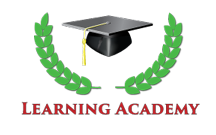
- Description
- Objectives
- Outline
- Materials
- System Requirements
- Watch a Demo
What is educational psychology? It is the study of learners and how they learn. Our Educational Psychology course examines the foundations of teaching, theories of learning, and child development. We analyze various teaching methods created to help educators understand the principles of learning in order for students to achieve success. We evaluate elements of student learning, methods of differentiation and assessment, and how to create effective learning environments.
After completing this course, you should be able to:
- Identify foundations of teaching and what makes a good teacher
- Describe aspects of child development, including cognitive, behavioral, and social theories of learning
- Recall components of lesson planning and approaches to instruction
- Recognize elements of differentiation, motivation, and student exceptionalities
- Identify how students learn, how to create effective learning environments, and the role of standardized tests
Educational Psychology Module 1
Foundations of Teaching and Cognitive Development
- What Makes a Good Teacher?
- Role of Research in Educational Psychology
- Intentional Teaching
- Piaget’s View on Cognitive Development
- Vygotsky’s View on Cognitive Development
- Bronfenbrenner’s View on Cognitive Development
- Language and Literacy Development
Educational Psychology Module 2
Social, Moral, and Emotional Development
- Erikson’s Stages of Psychosocial Development
- Implications and Criticisms of Erikson’s Theory
- Piaget’s Theory of Moral Development
- Kohlberg’s Stages of Moral Reasoning
- Criticism of Kohlberg’s Theory
- Socioemotional Development: Preschool, Elementary, Middle, and High School Years
Educational Psychology Module 3
Student Diversity
- Impact of Culture on Teaching and Learning
- How Does Socioeconomic Status Affect Student Achievement?
- Ethnicity and Race Affect Students’ School Experiences
- Language Differences and Bilingual Programs
- Multicultural Education
- Gender and Gender Bias
- How do Students Differ in Intelligence and Learning Styles?
Educational Psychology Module 4
Behavioral and Social Theories of Learning
- What is Learning?
- Pavlov: Classical Conditioning
- Skinner: Operant Conditioning
- Role of Consequences
- Reinforcers, Punishers
- Shaping, Extinction
- What are Behavioral Theories?
- Principles of Behavioral Learning
- Social Learning Theory and Understanding of Human Learning
Educational Psychology Module 5
Cognitive Theories of Learning
- Information-Processing Model
- Brain Research
- What Causes People to Remember or Forget?
- Memory Strategies
- What Makes Information Meaningful?
- Metacognitive Skills
- Study Strategies
- How Cognitive Teaching Strategies Help Students Learn
Educational Psychology Module 6
The Effective Lesson
- Direct Instruction
- State Learning Objectives
- Presenting New Material
- Provide Independent Practice
- Assess Performance and Provide Feedback
- Concept Learning and Teaching
- Teaching for Transfer of Learning
- Discussions in Instruction
- Whole-Class Discussions
- Small-Group Discussions
Educational Psychology Module 7
Student-Centered and Constructivist Approaches to Instruction
- Historical Roots of Constructivism
- Top-Down Processing
- Peer Interaction
- Discovery Learning
- Self-Regulated Learning
- Scaffolding
- Cooperative Learning Method
- Problem-Solving Process
- Teaching Creative Problem Solving
- Teaching Thinking Skills
Educational Psychology Module 8
Grouping, Differentiation, and Technology
- Elements of Effective Instruction
- Between-Class Ability Grouping
- Untracking
- Regrouping
- Retention
- Differentiation and Personalized Instruction
- Peer Tutoring
- Compensatory Education Programs
- Early Intervention Programs
- School Reform
Educational Psychology Module 9
Motivating Students to Learn
- Theories of Motivation
- Motivation and Human Needs
- Motivation and Attribution Theory
- Motivation and Mindset
- Motivation and Self-Regulation
- Goal Orientations
- Learned Helplessness
- Teacher Expectations and Achievement
- Intrinsic and Extrinsic Motivation
- Using Praise
Educational Psychology Module 10
Effective Learning Environments
- Impact of Time on Learning
- Using Engaged Time Effectively
- Classroom Management
- Setting Class Rules
- Prevention
- Nonverbal Cues
- Praising Other Students
- Verbal Reminders
- Applied Behavior Analysis
- How Are Serious Behavior Problems be Prevented?
Educational Psychology Module 11
Learners with Exceptionalities
- Types of Exceptionalities
- What is Special Education?
- Response to Intervention
- What is Inclusion?
- Strategies for Students with Disabilities
- Prevention and Early Intervention
- Computers and Students with Disabilities
- Social Integration of Students with Disabilities
Educational Psychology Module 12
Assessing Student Learning
- Instructional Objectives
- Why is Evaluation Important?
- Student Learning Evaluations
- Principles of Achievement Testing
- How Are Tests Constructed?
- Portfolio Assessment
- Performance Assessment
- How Are Grades Determined?
Educational Psychology Module 13
Standardized Tests and Accountability
- How are Standardized Tests Used?
- Types of Standardized Tests
- How Are Standardized Tests Interpreted?
- Test Validity and Reliability
- Testing Accommodations for Students with Disabilities
- How Educators are Held Accountable for Student Achievement
- Data to Inform Teaching
**Outlines are subject to change, as courses and materials are updated.**
Ed4Career is committed to being both environmentally conscious and making it easier for you to study! We’re making your education mobile! All of our textbooks are now provided as eTextbooks. You can access them on your laptop, tablet, or mobile device and can study anytime, anywhere.
The move away from physical books to eTextbooks means you get the latest, most up-to-date version available. This also makes your training more accessible, so you can study anywhere you have your phone or tablet. The best part is that all materials are included in your training cost so there are NO extra fees for books!
Internet Connection
- Broadband or High-Speed - DSL, Cable, and Wireless Connections
*Dial-Up internet connections will result in a diminished online experience. Classroom pages may load slowly and viewing large audio and video files may not be possible.
Hardware Requirements
- Processor - 2GHz Processor or Higher
- Memory - 1 GB RAM Minimum Recommended
PC Software Requirements
- Operating Systems - Windows 7 or higher
- Microsoft Office 2013 or higher. Also, you could use a general Word Processing application to save and open Microsoft Office formats (.doc, .docx, .xls, .xlsx, .ppt, .pptx)
- Internet Browsers - Google Chrome is highly recommended
- Cookies MUST be enabled
- Pop-ups MUST be allowed (Pop-up Blocker disabled)
- The Kindle Reader App or VitalSource Bookshelf App are needed for many of our courses (No special equipment needed. This can be downloaded for FREE onto your computer.)
- PowerPoint Viewer (if you do not have PowerPoint)
- Adobe PDF Reader
- QuickTime, Windows Media Player &/or Real Player
MAC Software Requirements
- Operating Systems - Mac OS x 10 or higher with Windows
- Mac office programs or a Word Processing application to save and open Microsoft Office formats (.doc, .docx, .xls, .xlsx, .ppt, .pptx)
- Internet Browsers- Google Chrome is highly recommended
- Cookies MUST be enabled
- Pop-ups MUST be allowed (Pop-up Blocker disabled)
- The Kindle Reader App or VitalSource Bookshelf App are needed for many of our courses (No special equipment needed. This can be downloaded for FREE onto your computer.)
- PowerPoint Viewer (if you do not have PowerPoint)
- Adobe PDF Reader
- Apple QuickTime Media Player


